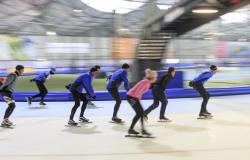
This is evident from a survey that the Practical Education Sector Council conducted among the 177 schools for practical education in the Netherlands, to which half responded. The number of registrations of primary school pupils who move on to the first year has fallen by an average of around 15 percent. In the big cities this number is much higher. For example, Rotterdam has about 25 percent fewer registrations, Zutphen about 50 percent and Almere even 70 percent.
According to those involved in the education field, the significant decrease, which is also visible in pre-vocational secondary education, is probably related to the new progression test in group 8, which has replaced the final test this year. Since then, schools have been obliged to give ‘promising’ advice: they must adjust the teacher’s advice upwards if the results of the progression test give reason to do so.
Arjen Daelmans, chairman of the VMBO Platforms Foundation, finds it a worrying development that the number of registrations at VMBO schools has fallen drastically this year. “In some schools even by 50 percent,” he says. ‘I hear from my colleagues in the HAVO department that they are receiving more registrations.’
Nicole Teeuwen, chairman of the Practical Education Sector Council, fears that many children will end up at the wrong level as a result. “We now see that children with an IQ of 60 are sent to pre-vocational secondary education,” she says. ‘We can count on our fingers that they return to practical education, but with a delay of one or two years and with more failure experience. That is disastrous for their self-confidence and motivation.’
Well-meant
Dealmans and Teeuwen refer to an earlier ‘well-intentioned’ government measure regarding promising advice, which had a negative outcome in practice. In March 2021, in the middle of corona times, former Minister of Education Arie Slob advised schools to adjust advice ‘upwards’ in order to compensate group 8 students for the education time they had missed during the pandemic.
The effect of this is reflected in figures from the Education Executive Agency (DUO): the number of students who switched to a ‘lower’ level increased significantly in both HAVO and VMBO. The number of people switching from pre-vocational secondary education to practical education even increased by a quarter compared to 2018.
There is now a fear that the same kind of effect will occur as a result of the flow test. Previously, school directors placed in de Volkskrant all their doubts about the reliability of the test, because in many cases they saw that students received a higher recommendation than based on the teacher’s estimate.
The Board for Testing and Examinations (CvTE), which is responsible for the quality and standardization of the progression tests this year for the first time, does not expect to be able to draw conclusions about the results until September. The children in question have already started at their new secondary school.
Two sides
According to Stan Termeer, spokesperson for the secondary education council, which represents the interests of secondary schools, it is good that measures are being taken to promote equality of opportunity, because research has shown that a group of students structurally received too low advice. “But it now seems that these adjustments are having a bad effect for some students and schools,” he says.
This also leads to practical problems: ‘If a school suddenly receives 10 percent fewer registrations, staff will have to be dismissed, who will then have to be hired from somewhere if it turns out that students return after one or two years.’
The Ministry of Education recognizes the signals, says a spokesperson. But she says it is still too early to conclude that students wrongly start at the wrong level after the summer. ‘We are monitoring this closely.’
The ministry still supports the new rules to promote equality of opportunity in education. ‘We also know that many students actually live up to higher expectations.’
Tags: Practical education prevocational secondary education experiencing sharp drop student numbers progression test
-




